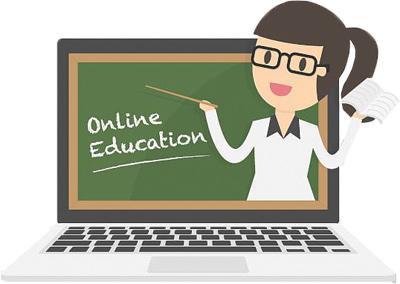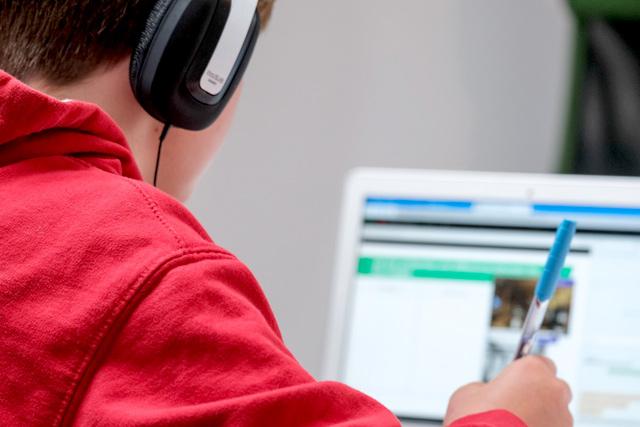You are here
Students, parents endure emotional, mental toll of online education
By Claudia Lacave - Dec 29,2020 - Last updated at Dec 29,2020

Photo courtesy of wordpress.com
AMMAN — Online education has taken a toll on the mental health of primary school children, mainly due to the long hours spent on screens at home, which, according to mental health experts and parents, has hindered the development of crucial skills.
Due to the pandemic-induced closures, around 7,000 schools in Jordan have shifted educational activities to remote learning, according to the National Campaign for the Return to Schools.
Children spend long hours in front of screens and miss outdoor activities and human interactions with classmates and teachers, which has a strong psychological impact on them, say psychologists.
The consequent rise in anxiety and aggressiveness impairs the learning process, the experts add.
“Children are losing their social skills, they are losing the ability to communicate with others and feel uncomfortable even around kids of their own age,” said Asil Jallad, an obstetrician, who founded the online campaign.
The interactions that children have with their peers and teachers help them develop social and emotional capabilities, understand the feelings of others and acquire basic social skills she said.
“I truly believe that these online classes have made our children more isolated and that the children have become more comfortable sitting behind the screens by themselves rather than spending time with other people,” Jallad noted.
Hiba Abu Romman, a mother of a five- and an eight-year-old children, expressed the fact that her kids are longing for the reopening of schools. “They miss the school life,” she said.
Her daughter Lareen, who is in the kindergarten, said: “I want to speak with my teacher in real life and have more fun.”
Abu Romman also said that staying focused on a fixed screen for a long time without any exercise is unhealthy for the children.
Massa Dalgamouni, an early childhood development specialist, said self-confidence is a main component of the learning process.
“Self-confidence doesn’t come from behind the screen, it comes from actual achievements that the child makes, Dalgamouni said.
Hussein Al Khozahe, a sociology professor, said that distance education makes some students dependable on others.
“Some families help their children answer questions or pass exams,” he said.
The National Campaign for the Return to Schools was launched to raise awareness about the risks of e-learning and encourage the government to reopen educational facilities for the second semester of the year.
“Parents are becoming overwhelmed as a result of the additional responsibility of taking care of the kids when they would normally be attended by their teachers. In turn, children are getting stressed out, sitting in front of the screen all day. Their sleep is affected as well,” Jallad said.
Online education requires a high level of self-discipline, Dalgamouni said.
“We know very well that at this age of early childhood or teenagehood, children do not possess those skills. So how can we demand them to sit behind the screen for long hours and focus, that their biological growth does not allow them to have,” Dalgamouni said.
She cited studies that show how students who had actual interactions gained the double amount of vocabulary, compared with students who followed online lessons.
"What is happening in Jordan is that most of the time the teacher is speaking, during online classes. So there is no actual interaction that stimulate children’s communication capabilities,” Dalgamouni said.
Related Articles
AMMAN — Eighty-two per cent of students who participated in a survey by the Jordanian National Commission for Women (JNCW) said they receive
AMMAN — A number of parents on Sunday protested in front of their children’s schools demanding that the government reconsider its distance l
AMMAN — The government decision to continue with remote learning for school children have drawn ire from parents, teachers and student
















